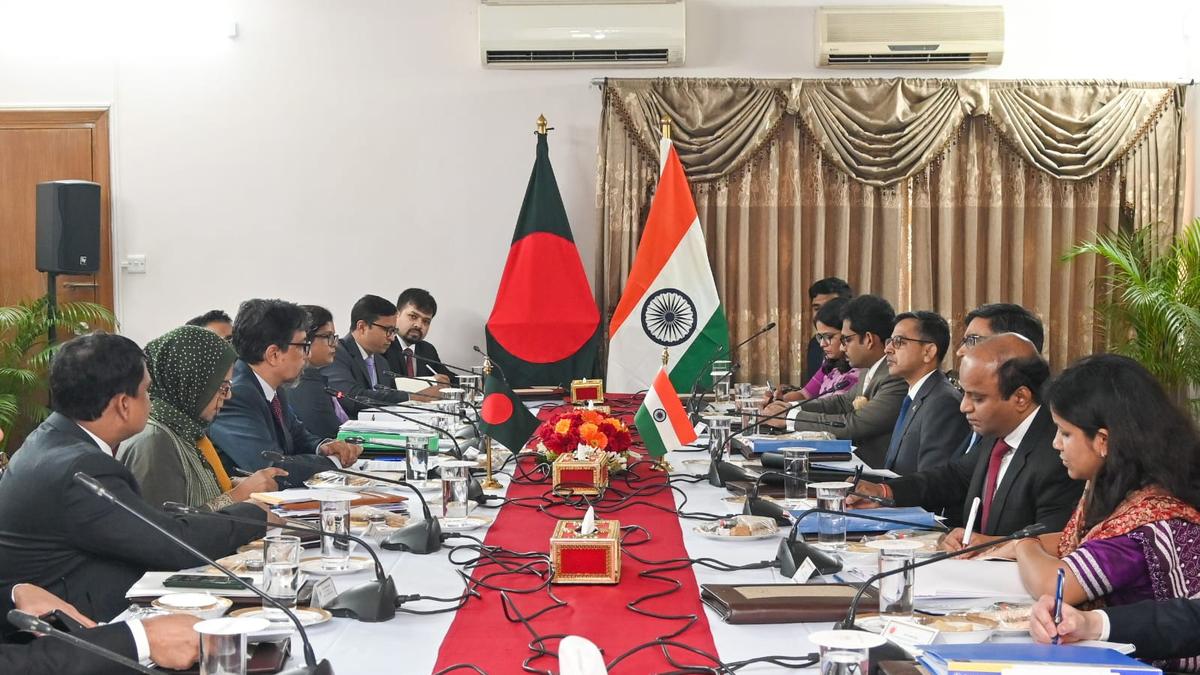 |
|
The recent visit by India's Foreign Secretary, Vikram Misri, to Bangladesh has brought to the forefront the complex relationship between the two nations, a relationship that the United States is actively monitoring and encouraging to resolve peacefully. Misri's visit, which took place in early December 2024, saw him conveying New Delhi's concerns regarding the safety and well-being of minority communities within Bangladesh. This statement, while seemingly straightforward, highlights a delicate geopolitical balance. India shares a long and porous border with Bangladesh, and the stability of its neighbor is of paramount importance to India's national security and economic interests. The concerns raised regarding minorities, therefore, are not simply humanitarian in nature; they have significant implications for regional stability and bilateral relations.
The United States' response, articulated by State Department spokesperson Matthew Miller, emphasizes a clear preference for peaceful conflict resolution. Miller's statement, "We want to see all parties resolve their disagreements peacefully," underscores the US's commitment to fostering a stable South Asian region. This stance is consistent with long-standing US foreign policy in the region, which aims to promote democracy, human rights, and economic development. The US's interest in peaceful resolution is not merely altruistic; a stable South Asia is crucial for regional trade, counter-terrorism efforts, and global security. The region's strategic importance is undeniable, given its geographical location and growing economic potential. Escalation of tensions between India and Bangladesh would have far-reaching consequences, impacting global trade routes and creating opportunities for instability.
Analyzing Misri's statement reveals a nuanced approach by India. While conveying concerns about minorities, he also emphasized India's desire to work closely with the interim government of Bangladesh. This suggests a pragmatic approach by India, balancing its concerns about human rights with the need for maintaining diplomatic ties with a key neighbor. The interim nature of the Bangladeshi government adds another layer of complexity. The stability of the interim government is itself a factor that impacts the overall regional stability, and any actions that could undermine it would likely have negative consequences. Therefore, India's cautious approach is likely a reflection of this complex reality, where maintaining stability and addressing concerns requires a delicate balancing act. The US's call for peaceful resolution serves as a crucial element of managing this complex situation, acting as a moderating force in a region prone to geopolitical tension.
The issue of minority rights in Bangladesh is deeply intertwined with historical, social, and political factors. The nature of these concerns, while not explicitly detailed in the provided text, necessitates a deeper understanding of the historical context and socio-political dynamics within Bangladesh. Religious and ethnic minorities have often faced challenges throughout the country's history, and addressing these challenges requires a multifaceted approach that considers historical grievances, socio-economic disparities, and the need for effective legal protections. Any resolution must involve meaningful dialogue, inclusive policy-making, and a commitment to upholding fundamental human rights. The international community, including the United States, has a vested interest in ensuring that these concerns are addressed in a way that promotes peace and stability in the region.
The ongoing situation underscores the importance of multilateral diplomacy and engagement. The US, India, and Bangladesh, along with other regional players, need to work collaboratively to find a sustainable solution that addresses the concerns raised while fostering mutual respect and understanding. Constructive dialogue, facilitated by international organizations and regional forums, is crucial. This dialogue should not just focus on immediate concerns but also address the root causes of tension and build mechanisms for conflict resolution. A commitment to inclusive governance, human rights, and economic development within Bangladesh is vital for long-term stability in the region, creating a positive atmosphere conducive to productive relations between India and Bangladesh. Ignoring these underlying issues could lead to further instability and complicate efforts to build a peaceful and prosperous South Asia.
Source: Want all parties to resolve disagreements peacefully: United States on India-Bangladesh ties
